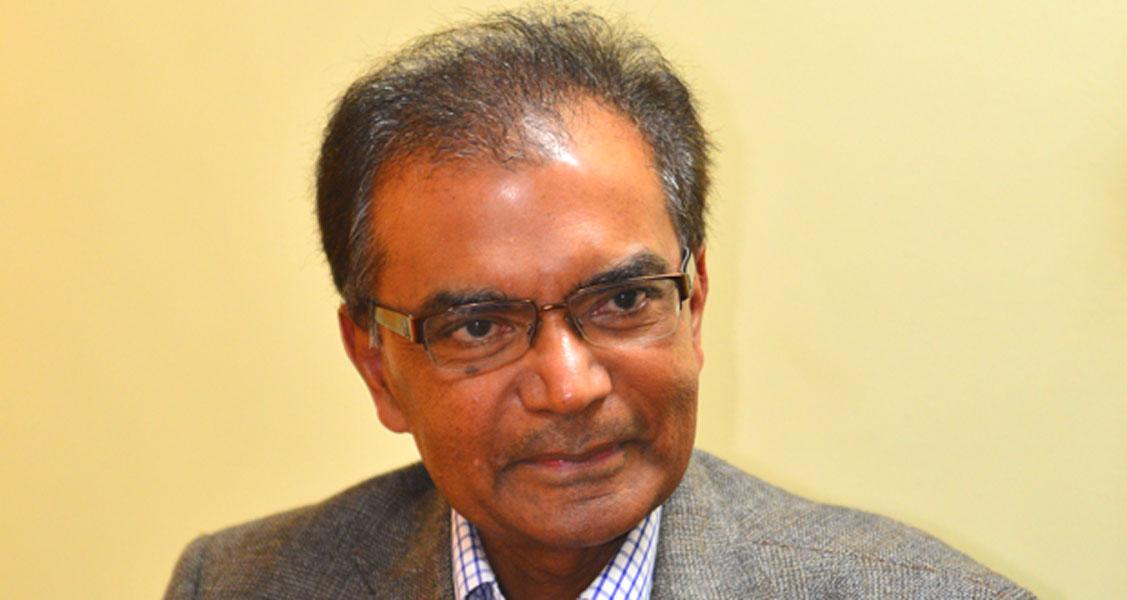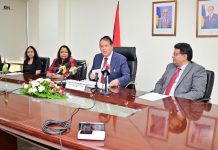Africa-Press – Mauritius. Milan Meetarbhan, aside from his previous role as Ambassador to the USA, is a respected constitutionalist and, as such, has been invited to share his views on a variety of topics impinging on our Constitution and our rights and freedoms in a democratic environment.
Has recent experience with the functionings of the State made it more urgent and necessary for key reforms on a variety of fronts to avoid pitfalls made evident and more fundamental issues as the financing of political parties? His views have also been sought on current affairs of interest such as the Caunhye Report on the former President, government’s defence of “India-bashing” or the recent outrageous leakage of private intimate material from a mobile that was in police custody.
Mauritius Times: You talked about constitutional development – a process that was initiated since the early 1960s – in the context of the SSR Memorial Lecture last week.
Would you say that it’s the dominant political culture present in the country today that makes a compelling case for a complete constitutional overhaul, not just incremental changes like the introduction of additional safeguards against any form of elective dictatorship?
Milan Meetarbhan: In fact, the history of the constitutional development of the country starts well before 1960 and the current constitutional regime must be seen as the outcome of what happened over at least 2-3 decades prior to independence.
A new constitution granted by the colonial power based largely on a template it adopted for many of its former colonies (though there were some specific provisions in the Mauritian Constitution not always found elsewhere) needs to be reviewed after almost 55 years.
Then there is also the experience acquired over these years of what works and what doesn’t have to examined. In addition, we have to take on board developments which have taken place globally especially with regard to new generations of human rights.
But it is true that the way our institutions have evolved over the last few years as a result of the new “political culture” we have witnessed over these years have really brought home the need for reinforcing the constitutional framework so that certain things don’t happen again.
If we take the case of the Speakership for example, the same legal provisions applied over many years have produced different results from the way that recent holders of the office have exercised their functions.
This makes us acutely aware of the need to ensure that the way institutions work does not vary according to the “culture” or lack thereof of any individual who happens to be in office at any given time.
* There must be more to constitutional reform than the recommendations of the Caunhye commission of inquiry made within the narrow boundaries set by its Terms of Reference.
What do you have in mind? The report of the Caunhye Commission is a mixed bag of findings following an inquiry over certain allegations and recommendations on some aspects of the powers, duties, immunity and privileges of a President or former President.
This was not a decision of the Commission but was the result of the Terms of Reference under which the Commission was appointed. But I must say that the recommendations of the Commission with regard to what can be called its examination of some aspects of the Constitution (and not its inquiry) are really helpful.
They are probably the first ever study of a limited number of constitutional issues by an official body except for the Mackay and Sachs reports. The Commission has therefore made an interesting contribution to constitutional debate.
One may not agree with everything the Commission said but its recommendations in the second part of its Report are valuable inputs to what should be a national debate.
* We heard the Leader of the Labour Party saying last Sunday at Belle Rive that there is need for additional safeguards that have hitherto not been envisaged before.
He did not expatiate on the question any further, but it would be a disappointment if those safeguards were not to revisit the issues of political financing, prime ministerial terms, the democratisation of political parties, wouldn’t it?
I don’t know which particular safeguards he had in mind, but I believe his statement reflects what many observers have been saying. As a nation we have discovered over the last seven years that what we probably took for granted before is not necessarily the case.
Our institutions may fail us and those at the helm may behave in a way which we did not think possible. So in the light of what we have experienced we may want to see additional safeguards in our Constitution so that there is no threat to our democracy.
Having said that, I must stress that a constitution like any legal document cannot address every foreseeable issue. Not every situation can be foreseen anyway.
At the end of the day, it’s the choice of the electorate for people whose culture and commitments to democratic norms and values, their competence and integrity which will make the difference.
The constitutional safeguards alone will not suffice. At a time when there is a lot of talk about changing the system, we have to remind ourselves that systems do not manage themselves, it’s people who manage the system.
Whilst we must continually perfect “the system” we must remember that if you change your engine to that of a Rolls Royce but your driver is still the same incompetent, corrupt and reckless one he is not going to drive you more safely to your destination.
* What about revisiting the issues of political financing, prime ministerial terms, the democratisation of political parties?
Democratisation of political parties is first and foremost a matter for the parties themselves. The electorate will judge them and their trustworthinessdepending on how they manage their own affairs.
For More News And Analysis About Mauritius Follow Africa-Press







